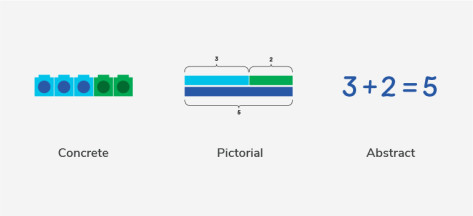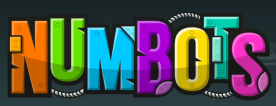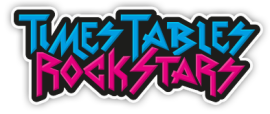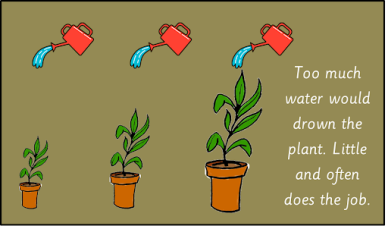
Maths
Intent:
At Goldsmith, we are mathematicians and problem solvers...
At Goldsmith we develop competent  mathematicians who are equipped with the appropriate knowledge and skills to succeed in the modern world. This curriculum covers all content of the National Curriculum (2014). Through this curriculum, we develop fluent mathematicians who challenge themselves by reasoning and problem solving, as a matter of course, in each lesson. We endeavour to model mathematical structures, using concrete apparatus, enabling pupils to represent their mathematical knowledge in pictorial or abstract form.
mathematicians who are equipped with the appropriate knowledge and skills to succeed in the modern world. This curriculum covers all content of the National Curriculum (2014). Through this curriculum, we develop fluent mathematicians who challenge themselves by reasoning and problem solving, as a matter of course, in each lesson. We endeavour to model mathematical structures, using concrete apparatus, enabling pupils to represent their mathematical knowledge in pictorial or abstract form.
Implementation:
-
What is our curriculum:
In our school, we have implemented the ARK Mastery Maths Programme of Study for primary pupils.  This is a highly practical and visual approach to a mastery curriculum and enables pupils to visualise problems in addition to solving them. Details of the subject matter being taught can be found in the ARK Mastery Maths Overview document. Additionally, details of how we teach calculations can be found in the ARK Mastery Maths Progression in Calculations document. We can divide our curriculum into five sub-curricula:
This is a highly practical and visual approach to a mastery curriculum and enables pupils to visualise problems in addition to solving them. Details of the subject matter being taught can be found in the ARK Mastery Maths Overview document. Additionally, details of how we teach calculations can be found in the ARK Mastery Maths Progression in Calculations document. We can divide our curriculum into five sub-curricula:
-ARK Mastery Maths Content Teaching
-ARK Mastery Maths Meetings
-ARK Same Day Catch-Up
-Multiplication Tables
-Arithmetic
ARK Mastery Maths Content:
EYFS - As per Development Matters, pupils in Nursery and Goldilocks are encouraged to investigate numbers and quantities in engaging, hands-on activities. Pupils are encouraged to make links between numbers and associated quantities of objects or manipulatives. In Reception, pupils are moved on to the ARK curriculum for EYFS Maths, receiving two maths lessons per week which are adult led, resulting in either an adult led activity to consolidate new knowledge or independent opportunities in Enhanced Provision. Children are also able to engage in maths-led activities throughout the week, which are based on the topic being covered. On Friday, teachers in Reception engage in personalised learning, ensuring that any gaps in knowledge are addressed quickly.
KS1 and KS2 - In KS1 and 2, pupils undertake four ARK Mastery Maths lessons per week. Teaching is borne of the concrete, pictorial, abstract approach to mathematics teaching and enables pupils to demonstrate their new knowledge in a variety of ways, using manipulatives. Pupils’ tasks are differentiated in order to enable ALL to achieve the learning objective. We use a simple Green (Working Towards), Yellow (Working At) and Red (Working Beyond) system, to signify the tasks being completed. Pupils are actively encouraged to move through the colour groups, should they be confident with a concept being taught. All pupils are aware they should be aiming for the yellow task or beyond. Manipulative maths equipment is used in all maths lessons, either by direct instruction of the teacher or available on the maths “Enable Station.” Equipment designed for regular use is contained within a 1:2 CPA toolkit box.
ARK Mastery Maths Meetings:
KS1 and KS2 - Pupils take part in “Maths Meetings” for 15 minutes in the afternoon session (3x/week in KS1 4x/week in KS2). These sessions are deliberately set apart from the main content teaching as they focus on engaging and activating prior knowledge. In all year groups, pupils are assessed using a grid of questions. Teachers then gap analyse this information and teach the identified gaps in subsequent maths meetings. Pupils then undertake a Maths Meeting assessment every two weeks, which should illustrate that teaching has addressed knowledge gaps. Multiplication table practice will also take place in these sessions.
ARK Same Day Catch-Up:
KS1 and KS2 - Pupils who do not succeed during teaching sessions will be identified by the class teacher to receive an ‘SDCU’ intervention. Pupils will work with a teacher or teaching assistant to have a second chance to learn a concept, the same day it has been taught. This takes place 4x/week in KS1 and KS2.
Multiplication Tables:

EYFS - Pupils have access to a “Numbots” login which teachers may use as an activity during free-flow play or as a direct teaching tool, later in reception. Numbots enables pupils to experience numbers in different context and begin to make simple addition and subtraction sentences, as pupils progress through the “Number Story” KS1 - Pupils are given individual access to “Times Tables Rock Stars.” Pupils are able to access this at home and in school during one maths meeting per week. In school and across our academy trust, we have frequent competitions to ensure engagement.

KS2 - As in KS1, pupils have access to their own TTRS login. Pupils are able to use this in school during one of their timetabled maths meetings. In addition, pupils in KS2 take part in the weekly 99 Club. Children demonstrate progress by completing a given number of questions in a given time. Pupils receive a certificate on successful graduation from a club. KS2 pupils will undertake the 99 Club in maths meeting time.
Arithmetic:
KS1 and KS2 - Arithmetic is timetabled as the fifth lesson of the week and is used in different ways on a bi-weekly basis. In week 1, pupils will be assessed on their arithmetic knowledge bi-weekly. In the initial session, pupils will undertake the test and then peer and shared mark the assessment, with the teacher modelling answers. In week 2, children will complete their Maths Meeting Assessment (30 mins) and also take part in an arithmetic gap filling session based on the gap analysis of the previous week’s arithmetic test data.
Impact:
How is impact measured?
ARK Mastery Maths Content, ARK Mastery Maths Meetings and Arithmetic:
Impact of our curriculum is measured in several ways. On a daily basis, pupils’ progress is measured through our #FeedForward policy; pupils are given next steps verbally and in their books. At the beginning and end of the unit, pupils are given pre- and post-unit quizzes. This enables teachers to plan for pupils' needs and identify and address gaps, where necessary. On a termly basis, pupils sit NTS mathematics assessments in arithmetic and reasoning. This data is also gap analysed in order to inform future planning and maths meeting foci. Impact of teaching is also quality assured through learning walks and lesson observation. Finally, the impact of the pupil’s whole mathematical journey is measured in end-of-key-stage assessments in the EYFS, KS1 and KS2. This data is published nationally.
Multiplication Tables:
Impact of our multiplication tables curriculum is measured by progress pupils make; through levels on TTRS, Clubs in the 99 club and more formally, in the Year 4 Multiplication Tables Check.
How do we know children have made progress?
There are several means of identifying progress in mathematics. The simplest is to identify the progression of pupils through the coloured groups on offer in our mathematics lessons. As previously mentioned, our pupils know they are aiming for the yellow task - working at year group standard. Pupils standardised scores, derived from performance in NTS assessments, are also key in identifying areas for development. As part of the GADY project (Goldsmith Attainment in Disadvantaged Youngsters), pupils are required to improve their standardised score by a set number of points in each term of assessment. This enables staff to see the important part they are playing in any child’s progression through the math curriculum.
How do we challenge and support lack of progress?
Teachers are challenged and supported through pupil’s lack of progress during pupil progress meetings. Teachers are able to highlight any concerns about a child, whilst providing solutions to assist that child in their continued study. SLT and the teacher together, may decide upon offering additional intervention to the pupil. Teachers and SLT will also endeavour to engage home in supporting in school learning, through home learning and IEP home packs.
How are we inclusive?

We believe every child should be able to access our maths curriculum. We feel that by offering quality first teaching to all, in addition to targeted and appropriate use of concrete resources, pictorial representations and eventual exposure to abstract calculations, all pupils can succeed. In all classrooms, CPA toolkits can be found which allows children 1:2 access to the equipment used in many mathematical teaching models (Numicon, Base 10, Place Value Counters, Bead Strings). Should pupils struggle in mathematics, additional support will always be given by teachers and teaching assistants in order to ensure that pupils achieve. Pupils are targeted for same day intervention, 4x/week, to be given a second opportunity to grasp a concept. If necessary, pupils will be identified as part of pupil progress meeting procedures and will be given extra intervention.

